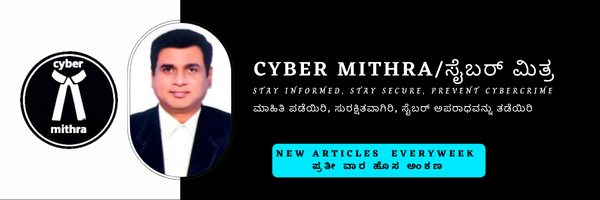Cyber Security Analyst and Specialist job opportunities
From the last column, I have been talking about the various Cyber Security job opportunities in India and across the world. In the last week‘s column, I gave a brief introduction to what is cybersecurity, why it’s needed, how big the cybersecurity market is, and end with top ten entry-level job opportunities. In this article, I am going to cover the first two cybersecurity job opportunities (Cyber Security Analyst and Cyber Security Specialist) out of those ten entry-level job opportunities, mainly the job features/responsibilities, skills, qualifications, certifications, salary, applicable job titles and career growth.
Cyber Security Analyst Job Opportunities :-
A cyber security analyst is an IT professional responsible for monitoring, preventing, and responding to security-related incidents in an oranization’s digital infrastructure. They play a critical role in protecting an organization’s sensitive data by identifying vulnerabilities in systems/equipment, implementing security measures and responding to potential breaches. For this post they should preferably have Degree/Diploma in Computer related subjects, preferably they should have the knowledge of various operating system, networking and system administration, security utilities/tools, programming and scripting skills. In addition, there should have non-technical or soft skills such as analytical thinking, problem solving, communication, team spirit and keen vision for breaches. Industry certifications like CompTIA Security+, Certified Ethical Hacker (CEH), and Certified Information Systems Security Professional (CISSP) can help you get a better job/salary. For this job, you can expect a salary of 3-12 lakhs in the first year. Here you start as Cyber Security/Information System Analyst and progress to Senior/Lead Analyst, Cyber Security Consultant and Chief Information Security Officer.
Cyber Security Specialist Job Opportunities :-
A Cyber Security Specialist is responsible for detecting cyber threats/conspiracies and protecting an organization’s sensitive information by implementing appropriate security measures. They are tasked with overseeing the organization’s data security operations, securing the entire IT infrastructure including software systems, networks and data centers, and creating the organization’s security policy and ensuring that all the employees of the organization adhere to it. For this post they should preferably have a degree/diploma in computer related subject, with knowledge of various operating systems, networking and system administration, security utilities/tools, ethical hacking, programming and scripting skills. In addition, there should have non-technical or soft skills such as analytical thinking, problem solving, communication, team spirit, patience and ability to focus and dig deep. Industry certifications like CompTIA Network+, CompTIA Security+, Certified Ethical Hacker (CEH), Certified Information Security Manager (CISM) and Certified Information Systems Security Professional (CISSP) can help you get a better job/salary. For this job you can expect a salary of 4 – 26 lakhs in the first year. Here you start as System Administrator, Network Engineer or System Engineer title and progress to become System/Network Manager or Designer/Architect.
Cyber security analyst and cyber security specialist jobs work towards prevention of cyber attack and information protection, there are many subtle differences between the two. A Cyber Security Specialist post is broader in scope of work than an Analyst post in that you need to have both breadth of knowledge across various things as well as depth into many of those verticals. While an analyst plays an important role in the functioning of a system or during operations phase, a specialist plays an important role during the development of that system.
Where can we learn these cyber security skills?
You can learn the above mentioned technical and non-technical skills in either offline or online mode. You can learn in offline mode in colleges (Karnataka and India) and also in online mode as part of diploma, degree, post graduation or certification course, such courses are also available to you for free (YouTube, udemy, simplilearn etc.) but to prove your knowledge learned to prospective employers, you may need to do certifications for your preferred job mentioned above.

